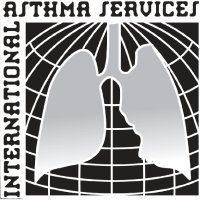There are no items in your cart
Add More
Add More
| Item Details | Price | ||
|---|---|---|---|

April, 2025 (Tentatively)
3 Months
Unlimited
Para-medic/Nurse
a) Allergy & Asthma speciality involves several procedures that needs to be conducted by the trained Assistants.
b) An opportunity to learn the scientific back ground of all the allergy procedures from best faculty across world.
c) An opportunity to learn & implement allergy asthma procedures in your practices.
d) Very few trained allergy specialists conducting all the procedures in India.
Allergy Asthma Assistant Course is the Next level of Allergy Training Taking into consideration the needs of allergy specialists in India, we have developed a 3 month certified course for Paramedics, Nurses and Allergy, Asthma Office/Clinic Assistants who have basic qualification such as 10th Grade with Good Communication Skills,12th Grade, Paramedic, and Qualified Nurse.
The course has been designed by 12+ acclaimed allergy & immunology experts from India and USA - all of who are from esteemed institution.
This course does not replace formal medical training or certification in allergy and asthma care. It is intended to serve as an additional educational resource for healthcare professionals.
The course fee is ₹ 6,500 + 18% GST. The fees include the following,
Certificates will be awarded upon successful completion of the required coursework and passing the examinations.
Students achieving an overall score of 80% or higher may be offered employment opportunities as Allergy Asthma Assistants, subject to approval and in accordance with the applicable terms and conditions.
Course Fee:
Course Fee will be accepted on single payment only.
Enroll NowVerification of documents must be completed prior to the scheduled day of the Launch of the Course. Please note that neither original documents nor hard copies are required for submission - duly self-attested (soft copy)
It will be mandatory for all the enrolled candidates to follow the course curriculum guidelines completely, failing which either their candidature may be cancelled or they will be not allowed to appear in the exit exam. The decision by AAAC governing body will be final and binding to all in this regard.
Attendance at the PCS is mandatory for appearing in the final exit exam. If due to certain circumstances, any candidate is unable to attend any PCS, then he/she is supposed to attend the same PCS with the next batch to be eligible for appearing in the final exit exam (next year after completion of all the PCS).
All sessions are planned as per the availability of faculties, teaching rooms, and other logistics. Once decided, PCS dates will NOT change due to any candidate’s personal request. Dates might change in a rare instance, depending upon the logistics for conducting the sessions. The decision by AAAC governing body will be final and binding to all in this regard. The exit exam will be conducted during the PCS. Minimum of 60% marks in both theory and practice will be required (independently) for passing the exit exam. The final exam will be evaluated by the faculties.
There is NO separate exam fee for the candidates enrolled in the same academic batch. If a candidate needs to appear for the exit exam in subsequent batch after enrollment due to any reason (including the inability to attend any PCS or clear the exit exam in scheduled time or others), he/she is supposed to submit the LATE EXIT EXAM FEE (1000/- INR for Indian nationals).
There will be NO refund of any part of the fee after submission, even if the candidate chooses not to join the course or discontinue in between due to any reason. The fee will NOT be transferred to another candidates account if any candidate wishes to do so. In case of any unusual circumstance, the decision of the AAAC governing body will be final and binding to everyone.
Convocation - Successful candidates will be awarded the Certificate of the “Allergy Asthma Assistant Course” by International Asthma Services and MedTrain.
Dispute settlement - The venue of the arbitration will be Bangalore and the Indian laws will be applicable. The Bangalore court alone will have the exclusive jurisdiction to adjudication in case of any dispute.

